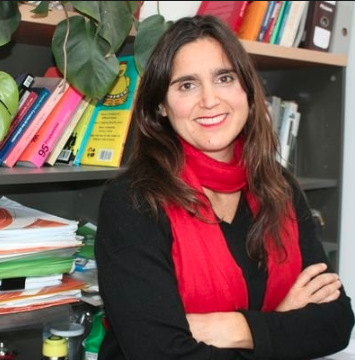Community Intervention Program at the Universidad de las Américas, Chile: Reflections and Lessons Learned
Monday, December, 10th, 2018 News
By Francisca Infante E.
Dean for Social Science
Universidad de las Américas, Chile
 The 2018 MacJannet Prize honorable mention, “Community Intervention Program” at Universidad de las Américas (UDLA) in Chile connects the university with neighborhoods for community engagement projects. Students in a variety of disciplines apply, in a meaningful and concrete way, what they are studying in the classroom in a real world setting. In partnership with community leaders, students explore complex questions and co-develop action plans to implement projects and initiatives that contribute to the health and well-being of the community.
The 2018 MacJannet Prize honorable mention, “Community Intervention Program” at Universidad de las Américas (UDLA) in Chile connects the university with neighborhoods for community engagement projects. Students in a variety of disciplines apply, in a meaningful and concrete way, what they are studying in the classroom in a real world setting. In partnership with community leaders, students explore complex questions and co-develop action plans to implement projects and initiatives that contribute to the health and well-being of the community.
The program currently involves approximately 4,000 students, from eight disciplines (Architecture, Kinesiology, Occupational Therapy, Psychology, Nursing, Nutrition, Speech Therapy and Social Work), in three regions of the country. The students work with more than a hundred fifty community leaders. Over the course of eight semesters (4 years), they implement an academic curriculum based on a conceptual framework rooted in human development, civic engagement and social capital. The program undergoes progress evaluations each semester and product (or initiatives) evaluations every two years. In 2016, the program underwent a large impact evaluation at the university and in the community which outlined important improvements and strategic directions for the future.
In this reflection, I share the main lessons learned for strengthening community partnerships among a diverse set of stakeholders while ensuring students become empowered and fulfill their learning outcomes. The goal is to share these valuable lessons with Talloires Network members and partners.
- Community leaders are the experts: Community leaders function as professors in their own right and should take part in teaching community engagement courses. They are crucial in helping students understand and learn how their discipline manifests itself in the real world. By acknowledging community leaders’ role, students learn to listen, communicate and build solutions together with the community, combining professional and community knowledge in practice.
- Strive for long-term commitment: Students’ community engagement experience at UDLA was intentionally designed to be a long-term relationship-building process. It is divided into four stages aimed to foster a spirit of community engagement– a deep-rooted civic responsibility and ethics. In the first year of the program, students are assigned a specific neighborhood where they spend time building a trusting and collaborative relationship with community members and leaders. In their second year, they conduct applied research alongside members of the community. In their third year, they co-select a community priority, and in their fourth year they co-create an intervention with the community leaders and the local government. This long term commitment helps to ensure the sustainability of both the projects and the relationship with the community.
- Establish implementation framework(s) for community engagement projects: The implementation framework is built in partnership with community members. Each course is clearly designed with learning outcomes and employs a diverse set of pedagogies. Additionally, the work with the community also has clear implementation and learning outcomes. The community should also be able to monitor the process and progress of the intervention programs.
- Develop measurable outcomes along the way: We have developed measurable outcomes for tracking milestones. This has helped to demonstrate the progress to internal and external stakeholders and to keep them engaged and involved. It also helps to measure student learning and engagement. Progress on the measurable outcomes should be available for the community to view and provide feedback on. UDLA has created an online platform to share the data and research results of the intervention programs: observatorioudla.cl.
- Political support is key: Political support is key, especially in the context of our engagement work. We have the support of the university director, mayors of local governments, and community leaders. Their ongoing involvement must be secured from the beginning to facilitate decision-making, increase buy-in and support for the community intervention, and to provide support in the event that a community intervention does not go as planned.
- Give value to interdisciplinary community engagement work: Interdisciplinary work, especially when it involves including expertise from community leaders is not easy to carry out in an environment that places a higher value on traditional research. It is crucial that those who carry out this type of work continue to find ways to raise its value within and outside the university. Traditional research methods should be balanced with other methods including opportunities for reflection, dialogue, and a deep commitment to taking action in society.
- Make use of participatory methodologies: Using participatory methodologies are key to successfully combining and balancing different types of knowledge, competing expectations, and political pressures. Using participatory methodologies invite a wider range of stakeholders, which may aid implementation while promoting genuine engagement with the program.
The success and implications of UDLA´s Community Intervention Program are largely attributed to a framework of continued evaluation and decision making where the needs and goals of all stakeholders involved are considered. In 2016, we evaluated the first cohort of graduates who, according to employers and alumni evaluations and debriefs, had developed a deep commitment to community and public work as a result of the program.